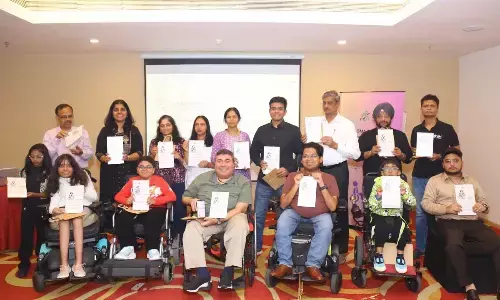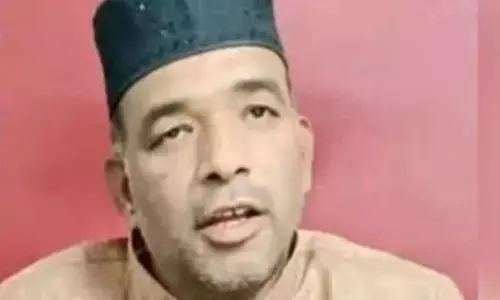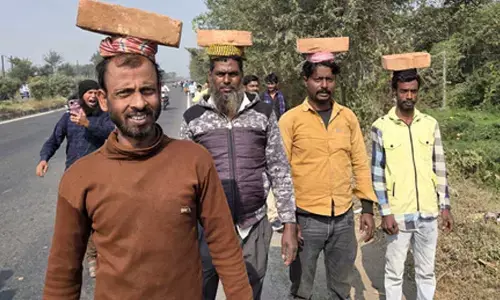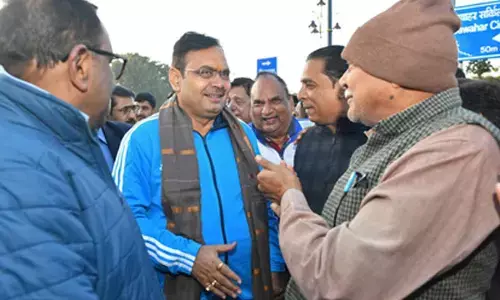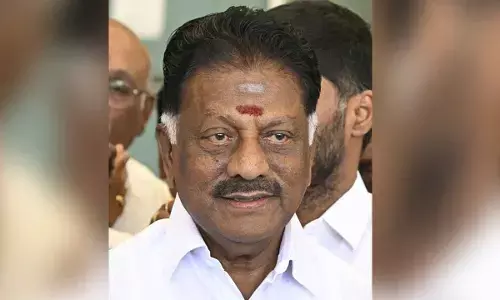Banjara women invent new ways to recycle water
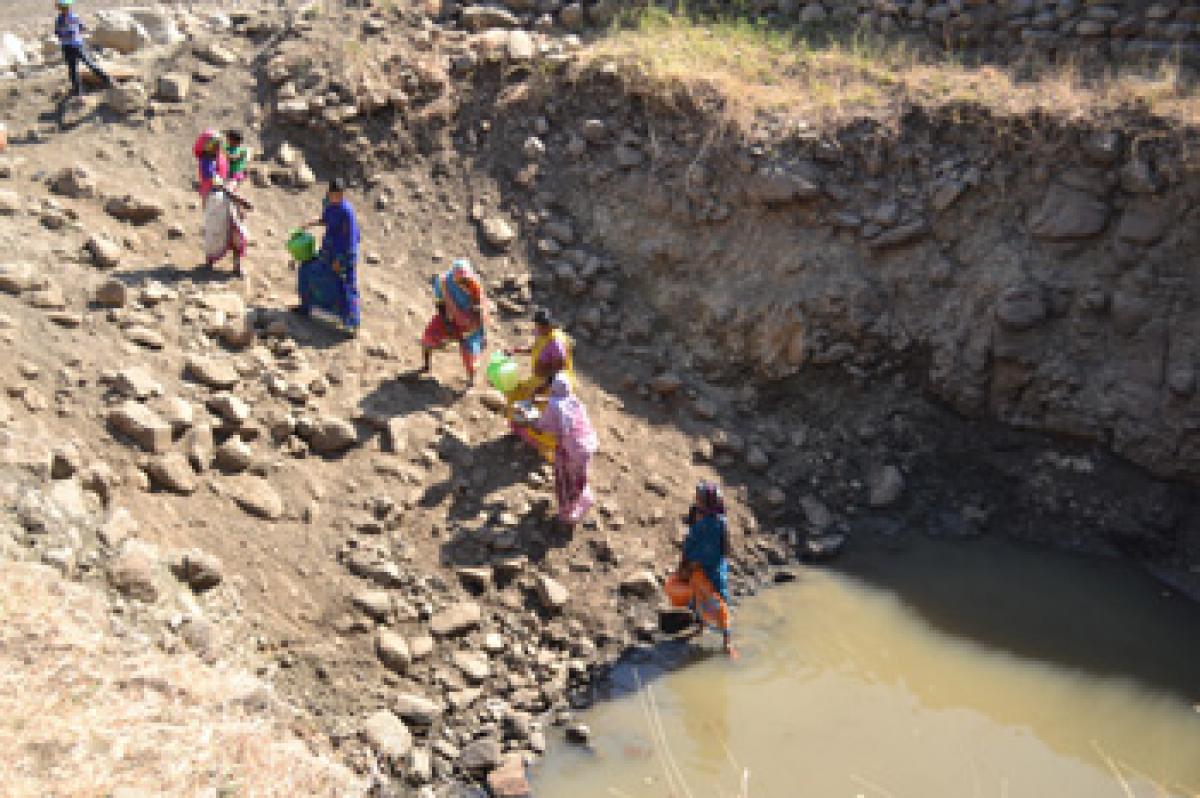
Residents of drought-hit Kondyanaik Thanda in Narayankhed constituency reuse water in their own impeccable style.
Narayankhed (Medak district): Residents of drought-hit Kondyanaik Thanda in Narayankhed constituency reuse water in their own impeccable style. The sight of women carrying plastic water pots to fetch water from far off places is common in Narayankhed constituency where the locals are facing acute water crisis as a result of scanty rainfall last monsoon.
However, the members of Banjara community in one of the hamlets seem to have found new ways to judiciously use and reuse water available to them. Kondyanaik Thanda is a sleepy village in Yenakpally gram panchayat of Manur mandal. The hamlet lies close to Karnataka border and is almost cut off from the outside world as there is no road connecting it even with the gram panchayat.
There are 45 Banjara families living in the hamlet, with a population of over 200. The hamlet lies on a hillock and a local stream which flows through the foot of the hill has gone completely dry. There is a well by the side of the stream, which is the main source of water for the entire village. However, the water in the well is muddy and green, which is not safe for drinking. Even the level of water is so low that it is just
a matter of time before the well goes dry.
Scaling the rocky terrain, the women of the hamlet make several trips with their plastic water pots to fetch dirty water from the well. They store the water in drums and use them for domestic purpose. The women spend half a day doing this tough trekking exercise. They use the water so judiciously that they place their children on top of a wire cot and give their kids a shower.
The water which drips down the wire cot; is collected in a container placed underneath the cot. The people use this collected water for providing drinking water to their cattle and goats. “As of now, the situation is not that hopeless, but in desperate situations which could arise in the near future, we would have to use the same water for washing our clothes as well, just like we did in the past,” said Chavan Raju, a villager.
The villagers are currently getting drinking water from the only private bore-well near the stream, belonging to one Chavan Hiraman, who is also the resident of the hamlet. He has been letting each family to take one pot of water from his bore-well. But of late, he has been said to be reluctant to let the women get water, as he received only Rs 4,000 for last year for doing this service.
When contacted, Prakash, Sarpanch of Yenakpally, said if the problem persisted, he would let the villagers take water from his personal bore-well in his farmland, which is located on the outskirts of the village. He is currently growing maize crop in his land, which would take at least another couple of months to be harvested. Some of the families in the hamlet have temporarily moved to other places to harvest sugarcane.








